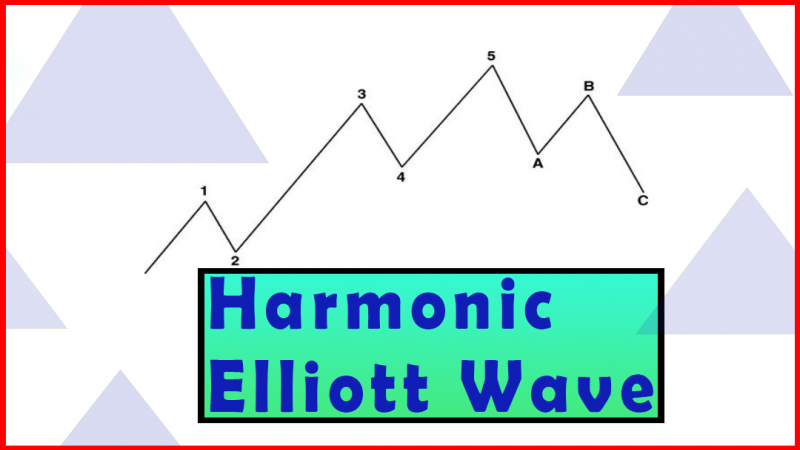Wave 5 Position
Diagonal Triangle Wave, Triangle Trading Method, Triangle Pattern
Course: [ Harmonic Elliott Wave : Chapter 1: R. N. Elliott's Findings: Impulsive Waves ]
Elliott Wave | Forex |
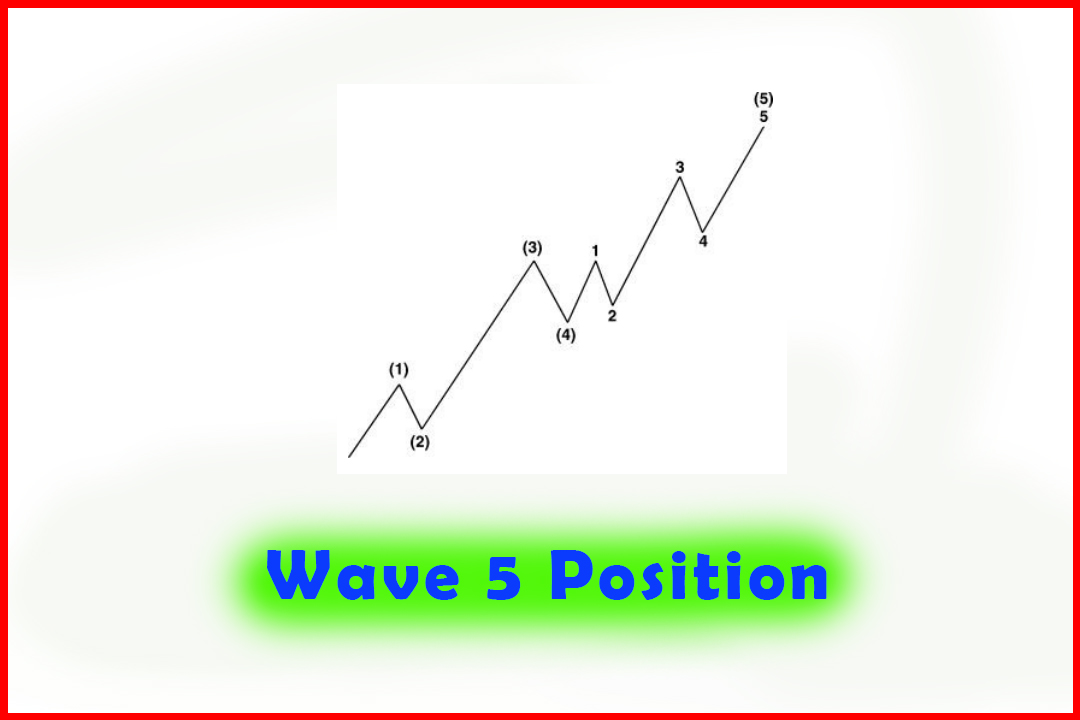
Elliott noted that this has a different structure from a normal impulsive move, being constructed of five waves of three and commonly holding within a channel or within converging lines
Wave 5 Position
Elliott
noted a variety of ways a Wave 5 could develop. This of course included an
extended Wave 5 that would look similar to Figure 1.8.
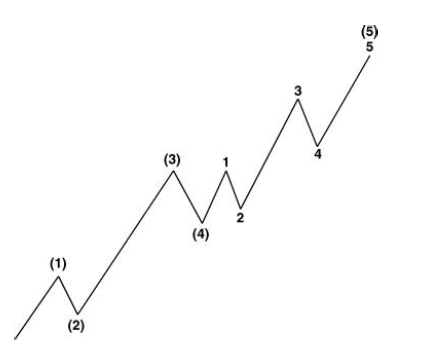
Again,
the argument tends to be that our target is much higher, and since the normal
extension ratios would not reach that target, we should be aware of the
potential for an extended Wave (5).
Figure
1.9 displays a long rally in the weekly AUDJPY chart. Note that in this
original Elliott method of counting, Wave (3) was extended and was followed by
an extended Wave [5] of Wave (5). Clearly I disagree with this counting method,
and will highlight this in Chapters 3 and 4.
Figure 1.9 An Extended Wave in Weekly
AUDJPY
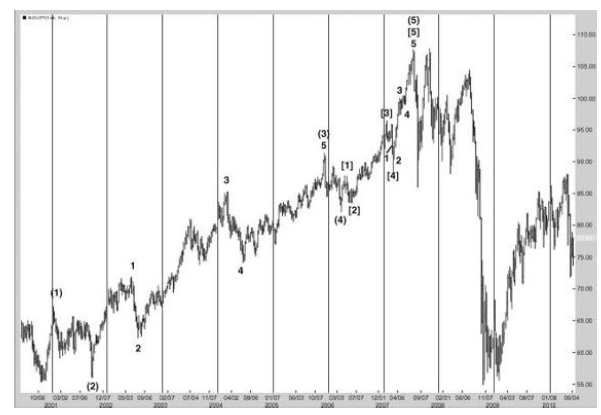
Another potential Wave 5 is a Diagonal Triangle. Elliott noted that this has a different structure from a normal impulsive move, being constructed of five waves of three and commonly holding within a channel or within converging lines (as shown in Figure 1.10).
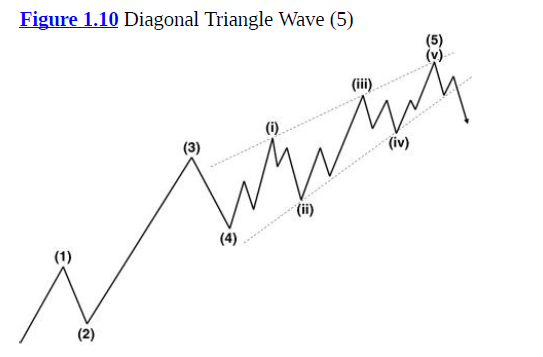
In traditional pattern analysis this is
obviously nothing more than a wedge, but Elliott refined the expectations by
detailing that there needs to be five waves, three in the direction of the
underlying trend with two intervening corrective waves. In general, those that
practice Elliott Wave tend to change the labeling to (i), (ii), (iii), and so
on, to differentiate impulsive waves 1, 3, and 5 constructed of five waves with
those constructed of three waves.
Figure
1.11 shows how a Diagonal Triangle Wave 5 wave rally would appear on a chart,
the example being the five-minute EURUSD chart.
Figure
1.11 A Diagonal Wave
(5) in the Five-Minute EURUSD Chart
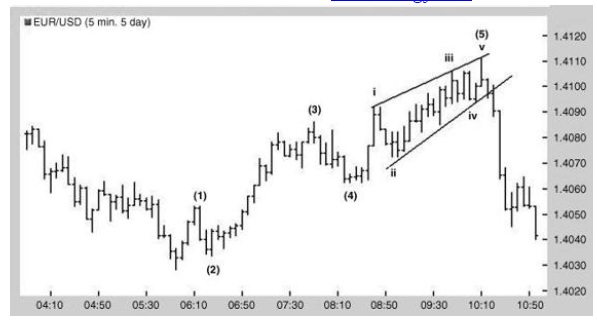
Elliott
proposed that extended waves could appear in any of the three impulsive
waves that is, Waves 1, 3, or 5 but only one impulsive wave could be extended
in any one sequence of five waves.
In
my own findings I feel this is really a reflection of an alternative structure
and was misunderstood. Later, through the use of detailed measurements of
waves, I shall describe why I have come to this conclusion.
Harmonic Elliott Wave : Chapter 1: R. N. Elliott's Findings: Impulsive Waves : Tag: Elliott Wave, Forex : Diagonal Triangle Wave, Triangle Trading Method, Triangle Pattern - Wave 5 Position
Elliott Wave | Forex |
